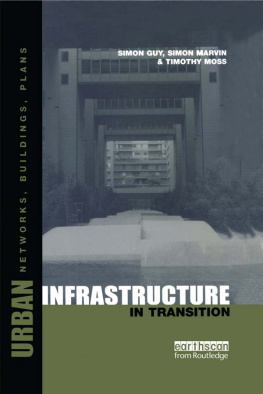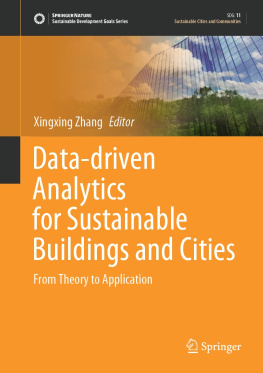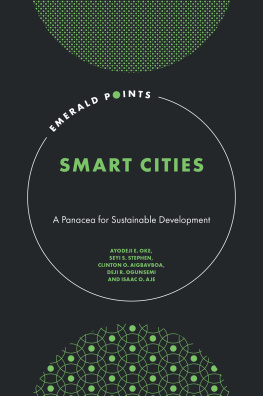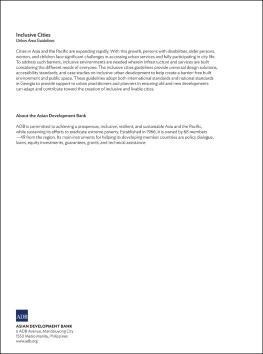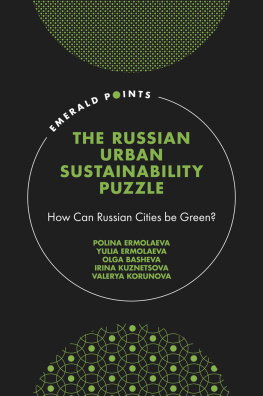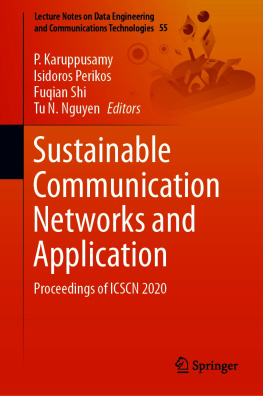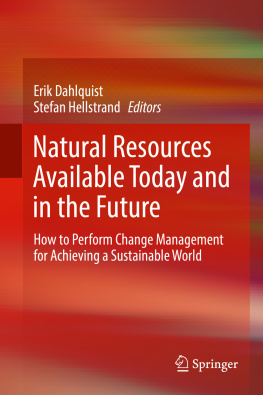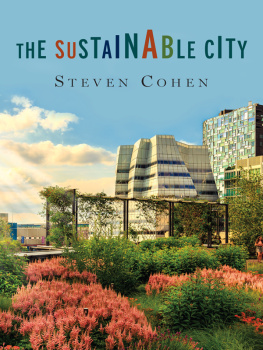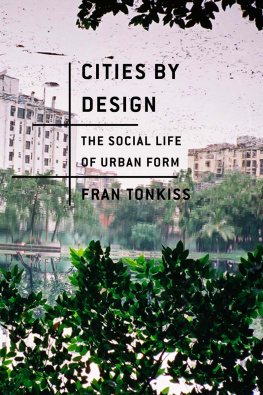URBAN INFRASTRUCTURE IN
TRANSITION
NETWORKS, BUILDINGS, PLANS
Edited by
Simon Guy
Simon Marvin
Timothy Moss
First published by Earthscan in the UK and USA in 2001
For a full list of Earthscan publications please contact:
Earthscan
2 Park Square, Milton Park, Abingdon, Oxon OX14 4RN
711 Third Avenue, New York, NY, 10017, USA
Earthscan is an imprint of the Taylor & Francis Group, an informa business
Copyright Simon Guy, Simon Marvin and Timothy Moss, 2001. Published by Taylor & Francis.
All rights reserved. No part of this book may be reprinted or reproduced or utilised in any form or by any electronic, mechanical, or other means, now known or hereafter invented, including photocopying and recording, or in any information storage or retrieval system, without permission in writing from the publishers.
Notices:
Practitioners and researchers must always rely on their own experience and knowledge in evaluating and using any information, methods, compounds, or experiments described herein. In using such information or methods they should be mindful of their own safety and the safety of others, including parties for whom they have a professional responsibility.
Product or corporate names may be trademarks or registered trademarks, and are used only for identification and explanation without intent to infringe.
A catalogue record for this book is available from the British Library
Library of Congress Cataloging-in-Publication Data
Guy, Simon.
Urban infrastructure in transition : networks, buildings, plans / Simon Guy, Simon
Marvin, Timothy Moss.
p. cm.
Includes bibliographical references and index.
ISBN 1-85383-694-X (hardcover) ISBN 1-85383-689-3 (pbk.)
1. City planningEnvironmental aspectsEuropean Union countries. 2. Public
utilitiesEuropean Union countries. 3. Sustainable developmentEuropean Union
countries. I. Marvin, Simon, 1963- II. Moss, Timothy, 1959- III. Titles.
HT169.E8 G88 2000
363.094091732dc21
00-046597
ISBN-13: 978-1-853-83694-7 (hbk)
ISBN-13: 978-1-853-83689-3 (pbk)
Typesetting by PCS Mapping & DTP, Newcastle upon Tyne
Cover design by Susanne Harris
CONTENTS
Timothy Moss
Simon Guy and Simon Marvin
Susanne Balslev Nielsen and Simon Marvin
Timothy Moss
Susanne Balslev Nielsen
Suzie Osborn and Simon Marvin
Simon Marvin and Susanne Balslev Nielsen
Simon Guy
Simon Guy and Suzie Osborn
Regine Mauruszat
Jesper Ole Jensen
Simon Guy
Timothy Moss and Morten Elle
Simon Guy and Simon Marvin
Morten Elle
Timothy Moss
Timothy Moss and Morten Elle
Simon Guy, Simon Marvin and Timothy Moss
Susanne Balslev Nielsen is a civil engineer working as assistant professor in the Department of Planning (IFP) at the Technical University of Denmark. She has a PhD in urban ecology and the transformation of technical infrastructure. Since 1997 she has researched and taught on urban ecology and planning at IFP with a particular research focus on new planning practices and public participation for sustainable infrastructures.
Morten Elle, PhD, MSc, is Associate Professor of technical urban ecology in the Department of Planning (IFP) at the Technical University of Denmark. He is author of the book Urban Ecology of the Future. His particular research interest is in the interrelationships between people, buildings and technical infrastructure and the development of novel methods of public participation. He is co-author of the Danish scenario-workshop method.
Simon Guy is Reader in Urban Development and Director of the Centre for Urban Technology in the School of Architecture, Planning and Landscape at the University of Newcastle. His research interests revolve around the social production of the material environment. He has undertaken research into a wide spectrum of urban design issues including the development of greener commercial office buildings, the role of architecture and property development in urban regeneration and the links between environmental building design and the provision of infrastructure services.
Simon Marvin is the United Utilities Professor of Sustainable Urban and Regional Development at the University of Salford. He has developed an interdisciplinary research programme examining the reconfiguring of urban infrastructure networks across the energy, water, telecommunication and transport sectors in the UK, Europe and developing cities. Key publications include Telecommunications and the City (with S Graham) and Cities, Regions and Privatised Utilities (with S Graham and S Guy).
Regine Mauruszat is an economist at the College for Administration and Law in Berlin. She was previously at the Institute for Regional Development and Structural Planning (IRS) in Erkner, near Berlin, where she researched a wide range of issues relating to regional development and planning, including green building, transport planning and spatial development in the state of Brandenburg.
Timothy Moss holds a DPhil in urban history. He is a research associate at the Institute for Regional Development and Structural Planning (IRS) in Erkner, near Berlin, where he has coordinated and conducted a number of national and international research projects on institutional dimensions to environmental change in urban and regional contexts. His special research interests are in the areas of infrastructure management, river basin management and EU strategies for sustainable urban and regional development.
Jesper Ole Jensen has a MSc in civil engineering. He has worked as a research assistant in the Department of Planning (IFP) at the Technical University of Denmark (DTU) on various projects on urban renewal, green strategies, the environmental performance of buildings and urban ecology. Currently he is studying for a PhD at the Danish Building Research Institute (SBI) with a project on housing, lifestyle and consumption.
Suzie Osborn was formerly a research associate at the Centre for Urban Technology in the School of Architecture, Planning and Landscape at the University of Newcastle. She is now working as a Local Agenda 21 officer.
The commitment to sustainable development is clearly one of the most important features of the Treaty of the European Union agreed in 1997 at the Amsterdam Summit. Complementing and reinforcing the policies adopted at other levels of governance local, national and global the European commitment to sustainability will have considerable implications over the coming years. Many aspects of public policies, business strategies, institutions, individual lifestyles and behaviour will have to be reconsidered. Research clearly has a fundamental role to play in preparing and enabling the necessary transitions.
The European Unions current fifth Framework Programme on Research, Technological Development and Demonstration Activities therefore lays strong emphasis on improving the knowledge base, on developing new technologies and on devising appropriate tools to achieve sustainable development. Within this general scope the programme acknowledges the special importance of urban issues, grouped under the key action City of Tomorrow and Cultural Heritage. Cities are not only the places where the vast majority of Europeans live and work, it is also there that the implementation of sustainable development policies is most urgent and particularly complex.

